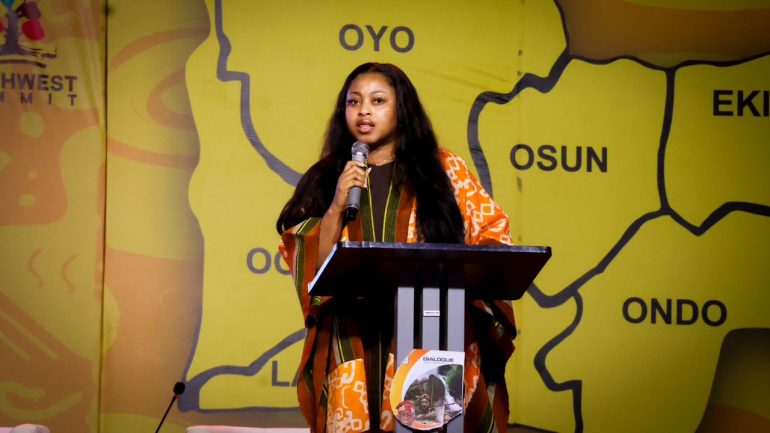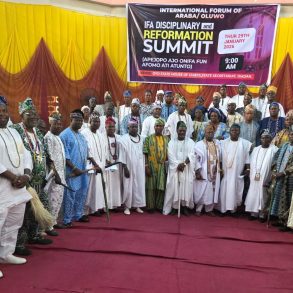October 31, 2025
By Tobi Akinnubi
The Think Yoruba First (TYF) Organization has urged Southwest leaders to embrace Ethnolinguistic Federalism as a sustainable framework for regional survival, asserting that the future of Yorubaland depends on protecting its political, cultural, and economic autonomy.
Presenting TYF’s position at the Southwest Summit held at The Dome, Akure, TYF’s Zonal Supervisor for Lagos State, Ms. Lola Lawal, warned that the Yoruba nation faces growing existential threats including loss of political influence, economic marginalization, and cultural dilution if decisive action is not taken.
Ms. Lawal described the crisis as rooted in Nigeria’s structural imbalance since the 1914 amalgamation, noting that rapid demographic shifts and legislative encroachments have endangered Yoruba land and identity. She pointed to controversial bills such as HB 2057 and HB 2059, which she said attempt to blur the line between indigeneship and residency, a move that could dispossess the Yoruba people of their ancestral lands.
“The Yoruba are facing a quiet erosion of our heritage, language, and autonomy,” she stated. “We must not sacrifice our identity, our culture, or our heritage because of Nigeria. Our loyalty to Nigeria must never come at the cost of our existence as a people.”
TYF’s position emphasized that Yoruba leaders must unite around the principle of self-determination within a federal structure that guarantees regional control and cultural preservation.
According to the organization, Yoruba survival requires deliberate population growth strategies, value reorientation, and economic empowerment to secure the region’s future. It also urged governments in the Southwest to strengthen education, entrepreneurship, and policy autonomy to ensure the region remains self-sustaining.
Concluding her presentation, Ms. Lawal declared that the “future of Yorubaland is on the ballot of history,” calling on Yoruba leaders to adopt policies that preserve their cultural identity while fostering unity and progress.
TYF reaffirmed its readiness to collaborate with stakeholders in shaping a regional blueprint built on justice, equity, and the Yoruba ethos of collective responsibility.






